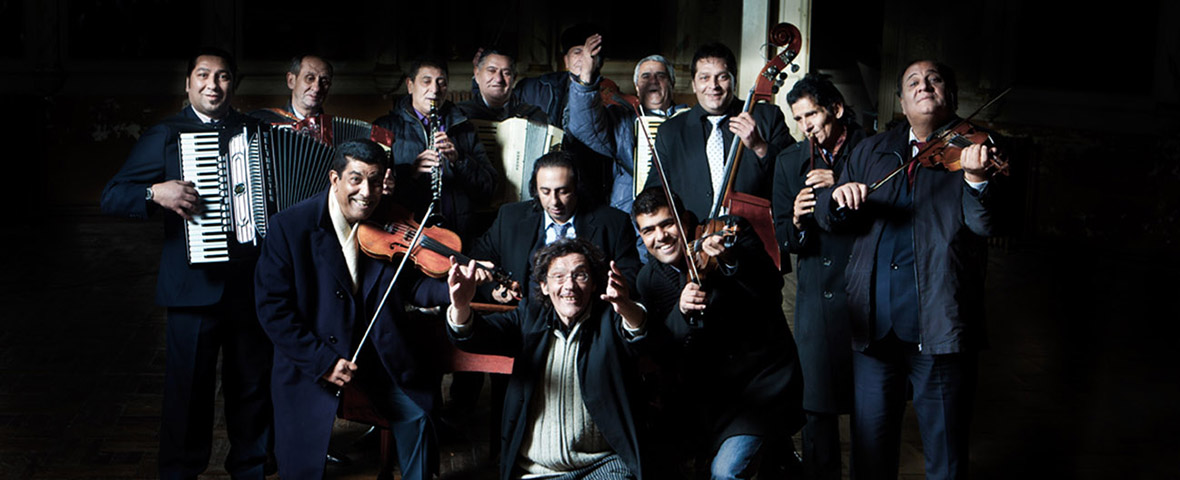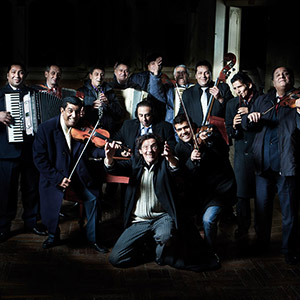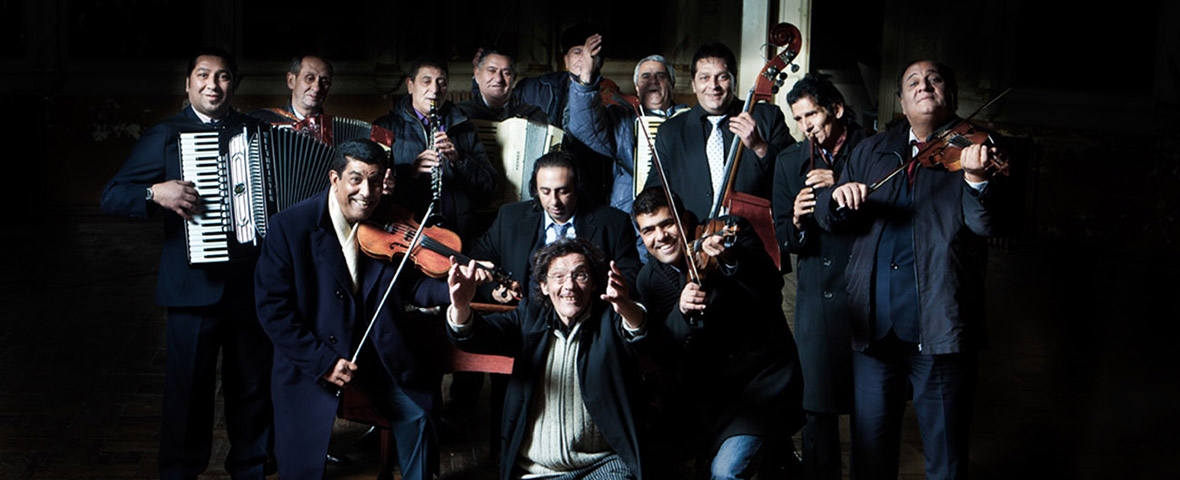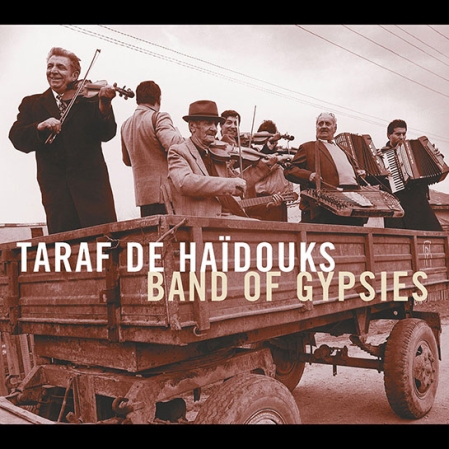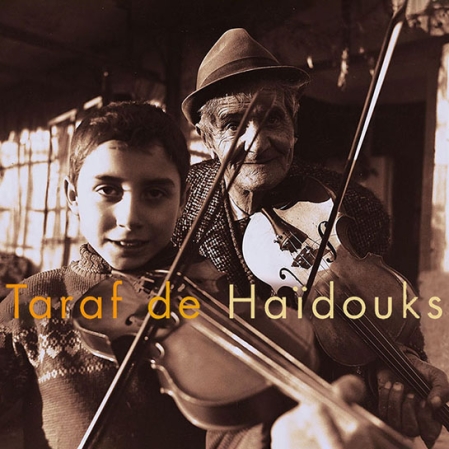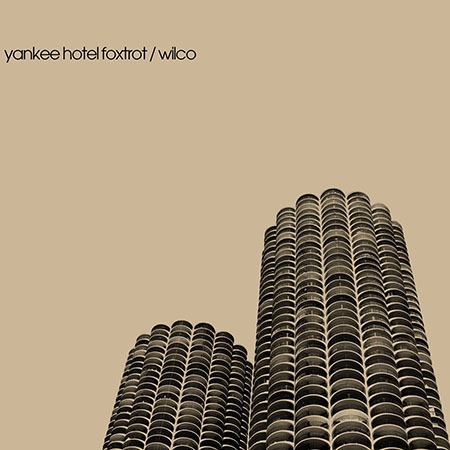Taraf de Haïdouks, whose name translates as “band of brigands,” are a village band of Gypsy lautari (traditional musicians) from the small Romanian village of Clejani. Comprised of a dozen instrumentalists and singers ranging in age from 20 to 78, the group had never performed outside of their region before being discovered by Stepháne Karo and Michel Winter, two young Belgian music fans who fell in love with their music during a trip to Romania in 1990.
Shortly after their visit, Karo and Winter organized a few concerts for the group in Belgium, and introduced the band to the European label Crammed Discs, who signed them and released their first recording at the end of 1991, Musique des Tsiganes de Roumanie. The recording introduced Western listeners to the rich musical world of the Romanian Gypsies, which includes medieval ballads, Turkish-flavored dance tunes from the Balkans, and characteristic vocal inflections reminiscent of the Gypsy people’s origins in the Indian sub-continent.
The album was hailed by the media and immediately topped the European world music charts. In 1992 Taraf de Haïdouks played a prominent part in the French/Gypsy director Tony Gatlif’s acclaimed film Latcho Drom, which won awards at the Cannes Festival. Their 1994 album, entitled Honourable Brigands, Magic Horses and Evil Eye, was voted Best World Music Album by the German Critics Association, and inspired the French director Guy Demoy to produce a documentary on the band for the French-German TV channel ARTE. Taraf’s 1997 recording Dumbala Dumba features an array of handpicked guests ranging from the ursari (descending from the brotherhood of the bear tamers) to Rosioru, the master of Valachian Gypsy crooners.
Positive support for the band in the media helped to inaugurate a touring schedule that has continued for the last eleven years, including their participation in North America’s 1999 “Gypsy Caravan.” Taraf became the first real village band to tour widely, taking the West by storm, equally at home on the concert stage or at all-night busking sessions at local bars or in the streets.
The 1999 “Gypsy Caravan” tour coincided with Taraf’s self-titled US debut, on Nonesuch Records, which culls material from all three European releases. David Harrington of Kronos Quartet and David Bither of Nonesuch Records assembled the compilation. It was followed in winter 2001 by the group’s first-ever solo tour of the US, playing to sold-out halls in two dozen US cities. They shared the stage in Stanford, CA with Kronos Quartet, with whom they are featured on the soundtrack to the new Sally Potter film “The Man Who Cried.” The tour gave way to their latest Nonesuch release, Band of Gypsies, an album of previously unrecorded pieces taken from three live performances in Bucharest, Romania at the end 2000.
Between recordings and tours throughout the Western world, the members of the Taraf return to their village of Clejani and their traditional lifestyle. They live by and for their music, which punctuates all the important events of the village’s social life: christenings, weddings, burials, and harvests. The invigorating music of Taraf de Haïdouks is a mix of local styles and flavors representing the richness of the Romanian folk tradition, ranging from haunting heartland ballads to dizzying fiddle dances. Performing on violin, accordion, cymbalum, upright bass and vocals, the older members contribute soul and experience, the younger ones speed and energy.
